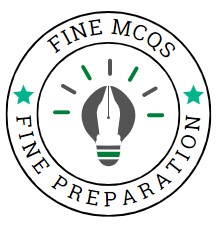121. Jaundice affects the
(a) Lungs
(b) Liver
(c) Kidneys
(d) Heart
122. Which one of the following is the correct group of diseases exclusively caused by virus?
(a) Measles, syphilis, rabies, cholera
(b) Poliomyelitis, syphilis, chicken pox, mumps
(c) Cholera, tuberculosis, meningitis, syphilis
(d) Measles, small pox, mumps, rabies
123. Which of the following is skin disease?
(a) Anaemia
(b) Pellagra
(c) Osteomalacia
(d) Rickets
124. Three communicable diseases prevalent in developing countries caused by unsafe drinking water and bad sanitation are:
(a) Malaria, acute diarrhoea and schistosomiasis
(b) Rheumatism, malaria and AIDS
(c) Acute diarrhoea, cancer and gout
(d) Onchocerciasis, leukemia and arthritis
125. Which of the following is not a mosquito borne disease?
(a) Dengue fever
(b) Malaria
(c) Sleeping sickness
(d) Filariasis
126. Cirrhosis is a disease that affects:
(a) Heart
(b) Liver
(c) Brain
(d) Lungs
127. Which of the following statements is true with respect to Leukaemia:
(a) Number of RBCs increases in blood
(b) Number of WBCs increases in blood
(c) Number of both RBCs and WBCS decreases in blood
(d) Number of WBCS decreases in blood
128. Alzheimer’s disease in human beings is characterised by the degeneration of:
(a) Kidney cells
(b) Nerve cells
(c) Brain cells
(d) Liver cells
129. In which of the following diseases do the germs enter through open wounds?
(a) Malaria
(b) Tuberculosis
(c) Typhoid
(d) Tetanus
130. Diabetes is caused due to the malfunctioning of:
(a) Liver
(b) Kidneys
(c) Pancreas
(d) Spleen

